- About MAA
- Membership
- MAA Publications
- Periodicals
- Blogs
- MAA Book Series
- MAA Press (an imprint of the AMS)
- MAA Notes
- MAA Reviews
- Mathematical Communication
- Information for Libraries
- Author Resources
- Advertise with MAA
- Meetings
- Competitions
- Programs
- Communities
- MAA Sections
- SIGMAA
- MAA Connect
- Students
- MAA Awards
- Awards Booklets
- Writing Awards
- Teaching Awards
- Service Awards
- Research Awards
- Lecture Awards
- Putnam Competition Individual and Team Winners
- D. E. Shaw Group AMC 8 Awards & Certificates
- Maryam Mirzakhani AMC 10 A Awards & Certificates
- Two Sigma AMC 10 B Awards & Certificates
- Jane Street AMC 12 A Awards & Certificates
- Akamai AMC 12 B Awards & Certificates
- High School Teachers
- News
You are here
Mathematical Treasure: Galileo’s Della Scienza Mecanica
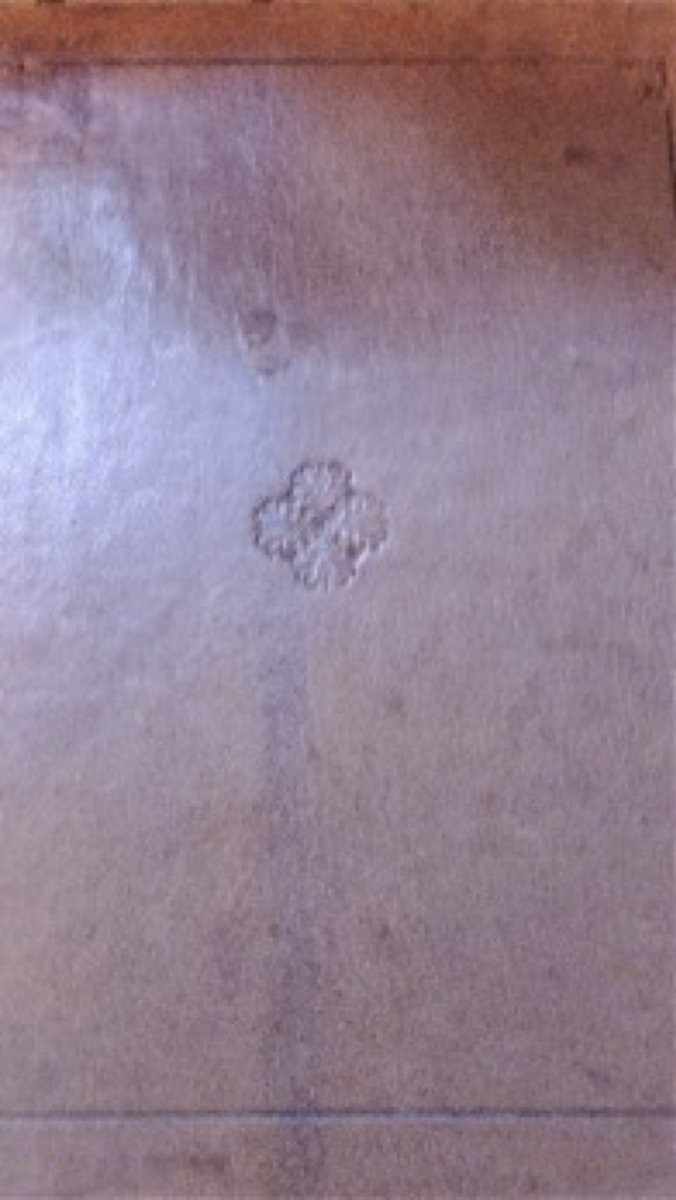
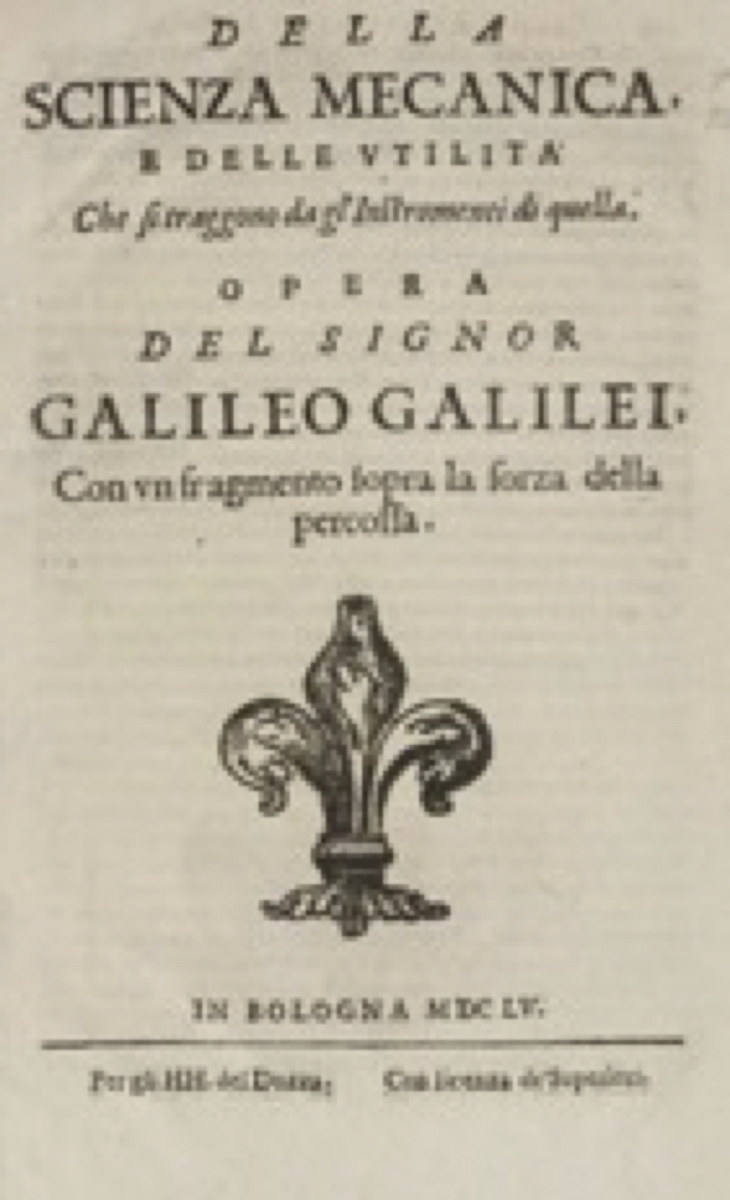
Binding and title page of Della Scienza Mecanica, from the collection of Dr. Sid Kolpas.
As I learned from email correspondence with Museo Galileo and Sophia Rare Books, this rare work derived from a series of lectures on aspects of statics and of simple machines delivered by Galileo for his pupils at Padua in the 1590s. (See also the advertisement to “Le Mechanica” in volume 2 of Antonio Favaro’s 1891 edition of Galileo’s collected works.) After circulating in manuscript form, it was posthumously published both in this separate edition (1655) and as part of Galileo’s Opere (1655–1656).
In the work, Galileo explains how to compute moment and center of mass. There then follows loosely mathematical/physical explanations of the lever, the pulley, the winch, and Archimedes’ Screw. Galileo shows that these mechanical engines can make a small force act as if it were a greater one. He proposes a postulate that the effect of one heavy body to turn another around a center of motion is proportional to the perpendicular drawn from that center to the vertical passing through the body to the direction of the force. He applies this proposition to the lever and to the inclined plane. In 1816, John Playfair commented, “To speak strictly, however, the demonstrations with respect to both these last [propositions] are incomplete, the preceding proposition being assumed in them without proof. It is probable that he satisfied himself of the truth of it, on the principle, that the distances of forces from the centre of motion must always be measured by lines making the same angles with their directions, and that of such lines the simplest are the perpendiculars” [Playfair 1816, p. 475].
The following images are from the copy digitized by the Max Planck Institute for the History of Science and made available via a Creative Commons License (CC BY SA):
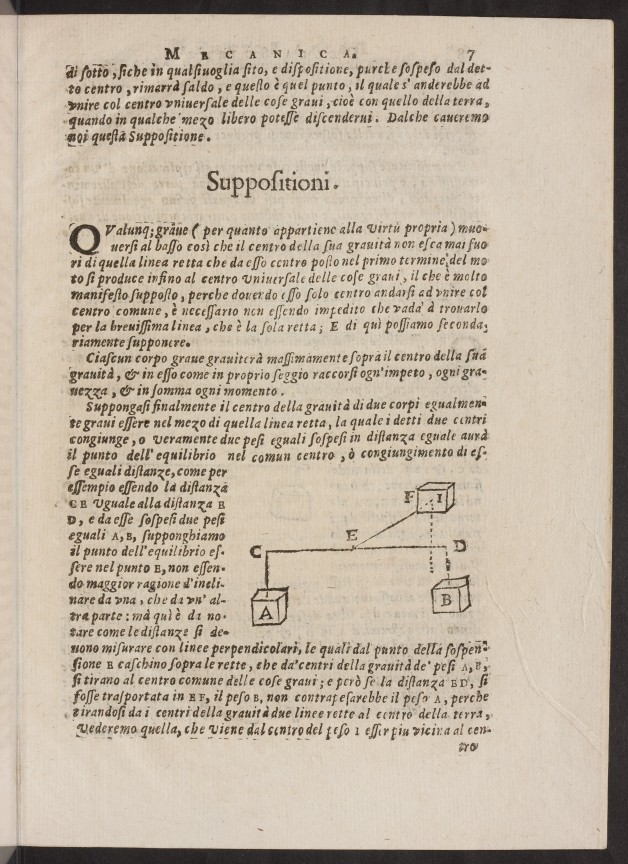
Finding the center of gravity.
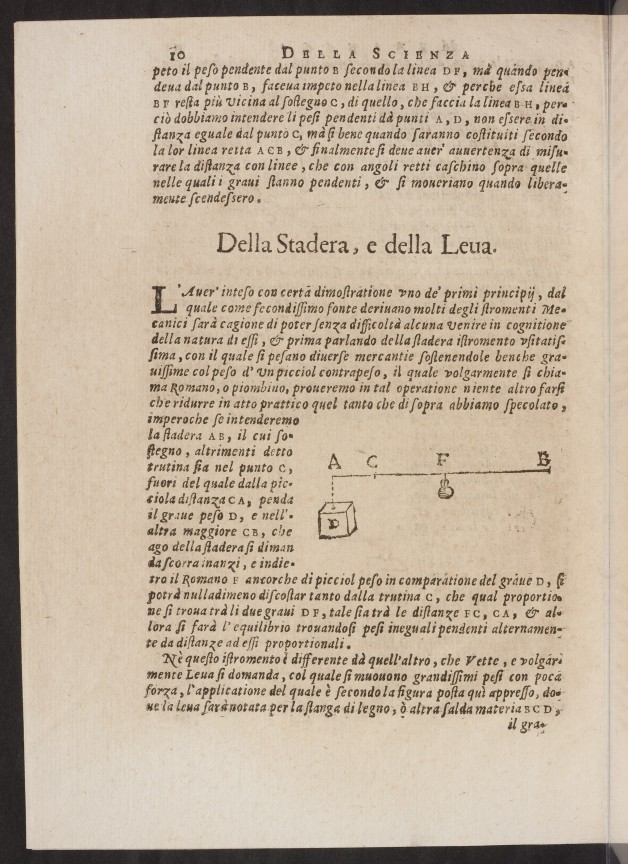
Explanation of the lever.
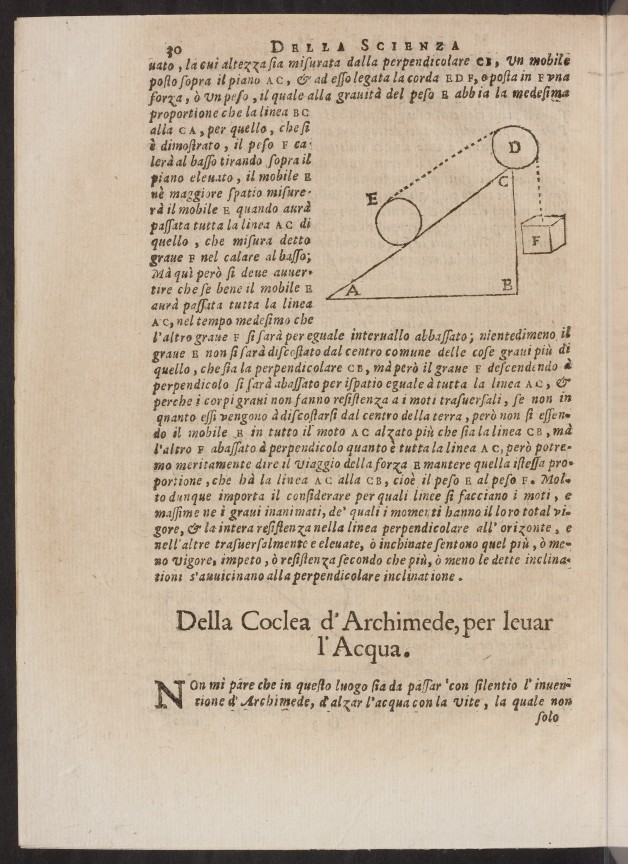
Explanation of the pulley.
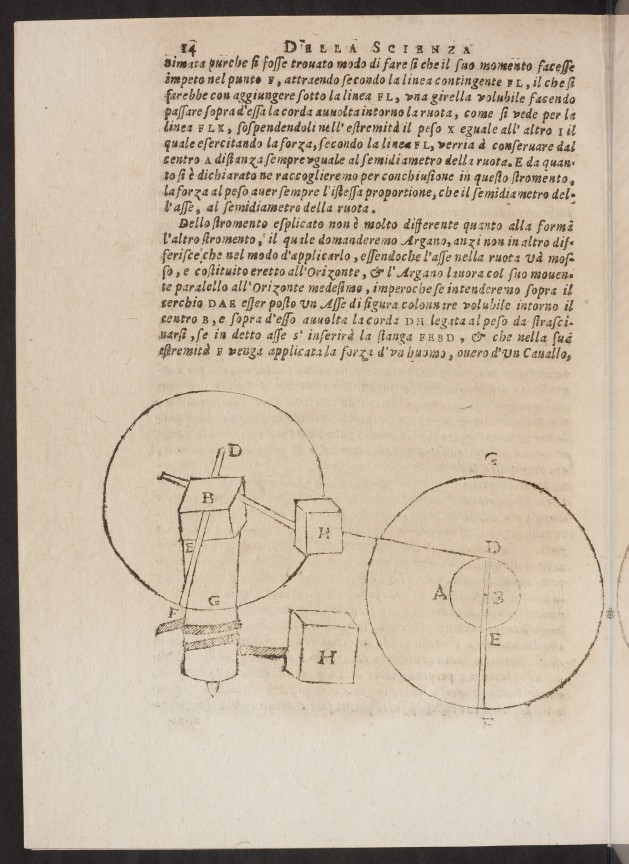
Explanation of the winch.
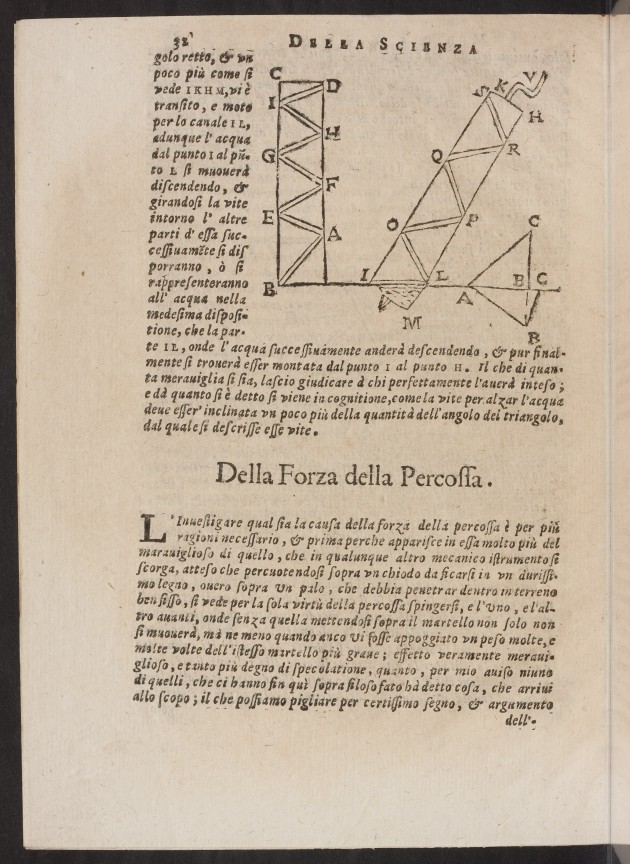
Explanation of the screw.
References
Email with author, Museo Galileo. https://www.museogalileo.it/en/.
Email with author, Sophia Rare Books. https://www.sophiararebooks.com/.
Favaro, Antonio, ed. Le Opere di Galileo Galilei. National Edition, Vol. 2. Florence, 1891.
Galilei, Galileo. Della scienza mecanica, e delle vtilità che si traggono da gl' instromenti di quella : con vn fragmento sopra la forza della percossa. Bologna, 1655.
Playfair, John. “Dissertation Second: On the Progress of Mathematical and Physical Science Since the Revival of Letters in Europe.” Supplement to the Encyclopaedia Britannica. Vol. 2 & 4. Edinburgh, 1816. Reprint; Dugald Stewart, James Mackintosh, John Playfair, and John Leslie, Dissertations On The History of Metaphysical And Ethical, And of Mathematical And Physical Science, Edinburgh: Adam and Charles Black, 1835.
Index to Mathematical Treasures
Sidney J. Kolpas (Delaware County Community College), "Mathematical Treasure: Galileo’s Della Scienza Mecanica ," Convergence (May 2021)




